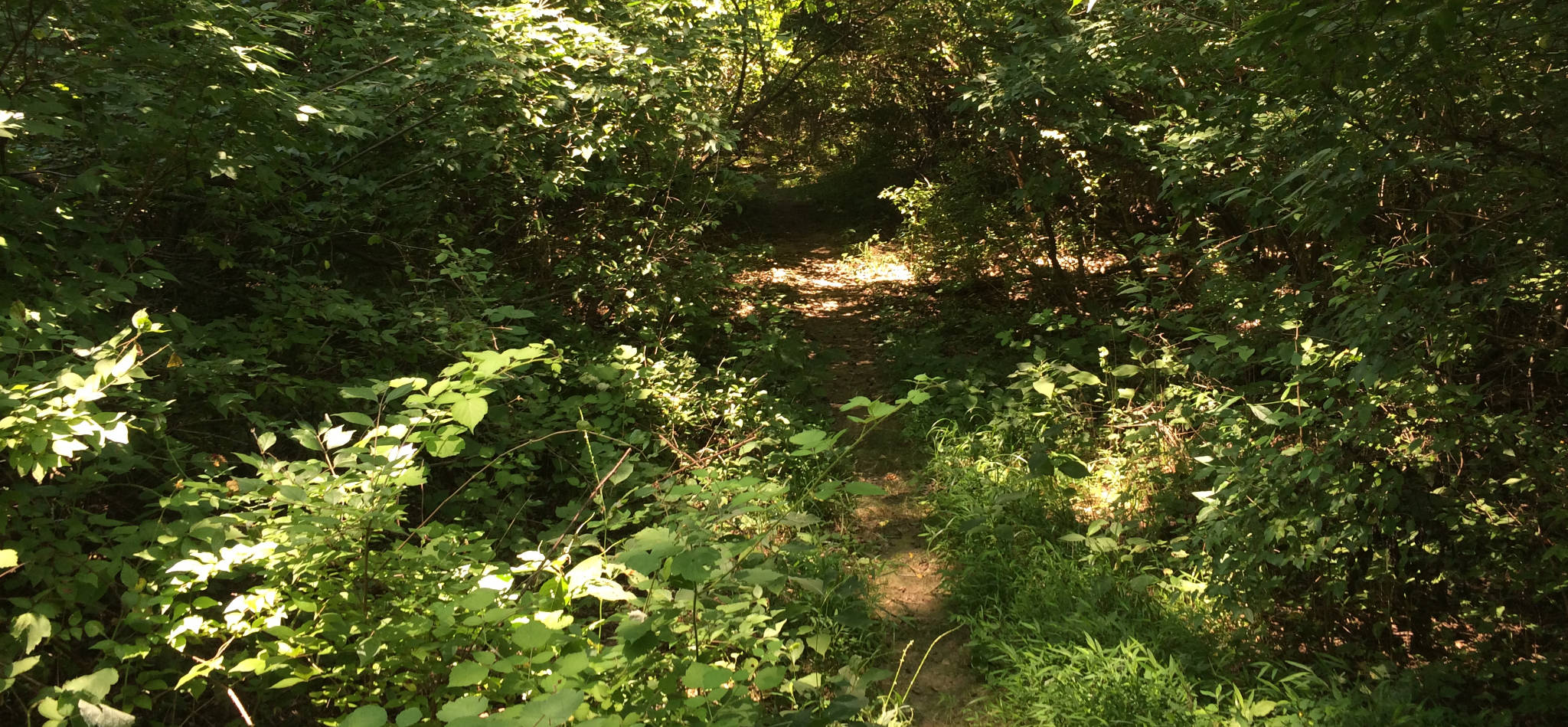Avoiding Ticks

I’ve been a regular hiker on Central NJ trails for 25 years, and in all that time suffered one tick bite in the Garden State. So let’s not go crazy here. Luckily, I’ve picked many more ticks off my skin before they bit me (dozens, over the years: I feel them moving across my skin, first), so let’s not underestimate the danger, either.
It pays to be cautious. Be particularly careful walking through long grass, fallen leaves, or thick brush.
Ticks generally get on your body from your feet, or legs, and then move to find a place to attach themselves, typically 30 minutes to several hours later. If you feel something crawling on your skin, take it seriously and investigate. You might be surprised to find a tick crawling, looking for that perfect spot. Until the tick actually punctures your skin, it can’t harm you. Just flush it down the drain.
Note that when a tick starts to feed it injects a natural anesthetic through your skin. So your best bet is to discover a tick is when it’s moving, or by inspection, in the shower, soon after your hike. Once a tick starts feeding it may take hours for you to feel it, if you do at all.
Personally, I ALWAYS hike in long pants and shoes, even in high summer. It’s not just for the ticks: NJ trails feature stinging nettles and poison ivy. Pants, shoes, socks, by themselves help protect you from all of them. Spray your shoes, socks, and lower pants legs with a repellent, or use permethrin-treated clothing, and you go a long way to avoiding bites. On your return, change your clothes, take a shower, and inspect yourself. The two tick bites I’ve suffered (one in NJ, and another in VA) both took place when I didn’t take a shower until the next day.
Frankly, folks who hike in NJ in shorts and open sandals are crazy, imo.
Recognize that walking through good tick habitat greatly increases the likelihood of getting a bite. Fortunately, most popular NJ hiking trails see enough foot traffic that the trail itself is reasonably barren. Danger times come in fall, when the leaves are newly on the ground, if you walk through tall grass, or if you bushwhack through brush of any kind. So be particularly vigilant if you do any of those things. My VA tick bite occurred after a long bushwhack; my NJ bite when newly fallen, October leaves were thick on the ground.
I can strongly recommend a new book (published 2020) by Alexis Chesney, ND. Tons of information about prevention and treatment. Alexis (who happens to be my sister-in-law) is a Doctor of Naturopathy specializing in treating Lyme. If you, like me, try to avoid antibiotics and toxic chemicals, this is definitely the book for you: PREVENTING LYME
Keep in mind, too, that if you are bitten, you can have your tick tested for Lyme and other tick-borne diseases. If it tests negative, you can avoid a prophylactic course of antibiotics, and ease your mind. There are several labs in the country that do this work, but one of the best is here: TickReport. Just be sure you save the tick after you remove it so you can send it in for testing.

